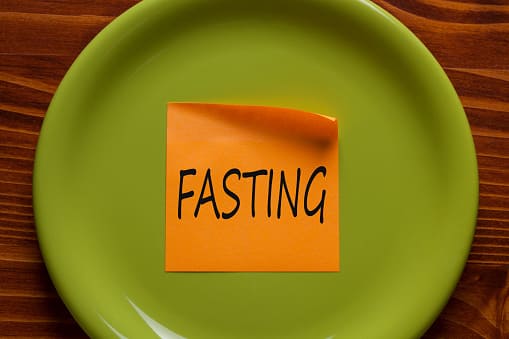Is Intermittent Fasting A New Dieting Fad?
You must be acquainted with the age-old saying, ‘eat breakfast like a king, lunch like a prince, and dinner like a pauper.’ Although several studies reiterate this popular belief to be an effective one, a lot of people have taken ‘diet’, or rather ‘eating’, to a whole new level. Welcome, Intermittent Fasting (IF)!
This emerging dieting (read, fasting) trend is quiet popular amongst the fitness fanatics, who are said to be reaping benefits out of it already. Is it really good, or is it just another dieting fad? Find it out here for yourself!
What is IF?

Fasting is not new to Homo sapiens. They have always fasted in the scarcity of food, and many times for religious reasons too. It is also inevitable when you sleep unless you wake up for midnight snacking. IF is all about skipping meals for extended periods occasionally. It is more of scheduling what you eat, and less of a diet plan. People are obsessed with it and it is believed to speed-up weight loss. As this sort of fasting is deliberate, there is no hard and fast rule to observe it on a particular day. You can, in fact, choose your fasting and feasting (quite literally!) days. The idea of losing weight through IF is not by abstaining from food, but by limiting it to a certain time.
How does IF work?

IF involves ‘eating periods’, which you can schedule as per your convenience or stamina. You can start with fasting for 8 hours, and then work it up to 18 hours, and 24 hours gradually. Try not to exceed your fast for 3 days or more, as it can affect your metabolism negatively, and may cause low blood sugar levels. During the fasting period, you either eat very little or nothing at all. These restricting hours make you consume fewer calories and aim at making you lose weight while maintaining your lean muscle mass. After your fasting period gets over, you can eat your regular meals.
How can you benefit from IF?

While various studies and research work are still in progress, people who have tried intermittent fasting have observed a few benefits -
- Drop in body fat, but no loss in lean muscle mass – holistic weight loss.
- Improvement in blood sugar levels.
- Decreased risk of heart disease.
- Better mood and memory.
- Easier and healthier than dieting.
- No forbidden foods, or prep for meals - so improved eating experience and simple routine.
Who should avoid IF?

Although the benefits are manifold, and its popularity is insane IF is not for everyone. This is same as in the case of any workout or diet plan. IF should ideally be avoided by –
- Someone with the history of an eating disorder.
- Women who are pregnant or breastfeeding.
- Women suffering from amenorrhea.
- People who are underweight.
The way most of us love sweating it out in a gym, there is a lot that prefers yoga, and then there are some who swear by dieting plans. The ultimate goal of any nutritious or fitness plan; however, remains the same – to have a better body and health. So focus on right food, good sleep, and regular exercise while you burn those calories, and let your body decide whether IF is yet another weight-loss fad or a friend with too many benefits.
For any queries related to healthy eating, you can consult a Dietician at www.healthcaremagic.com
Ask a Specialist
Recent Questions


